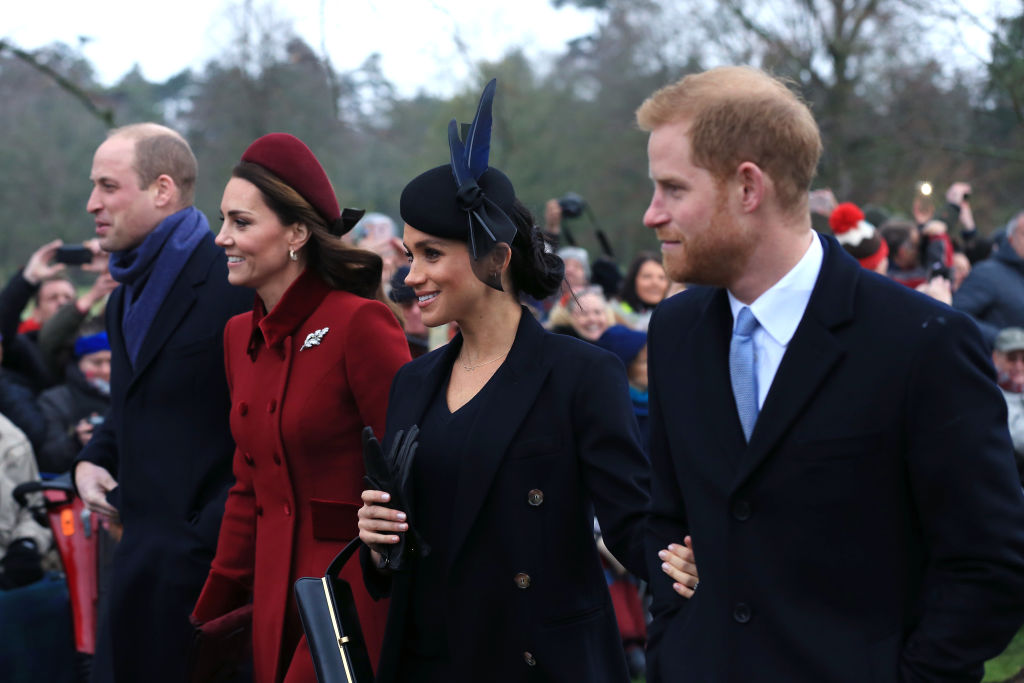In the Nineties, it was a husband and a wife who used supportive reporters, friendly biographers and the global reach of television to extol their own royal righteousness, as their marriage deteriorated.
Now, it’s the sons of Charles and Diana who are settling scores after the searing pain of a shared bereavement failed to lash them together for life.
Harry is first out of the traps with ‘Finding Freedom’, which is being serialised in the Times and the Sunday Times. The biography captures his intense hurt that the people who are variously described as ‘the men in grey suits’, ‘the old guard’ and ‘vipers’, didn’t properly appreciate what he and his wife Meghan brought to the Windsor table.
Though written from the couple’s perspective, the book offers balance and reminds readers there’s an obvious royal pecking order – one Harry moved down, each time his elder brother had a child. It’s why Diana used to call him the ‘back up’.
It’s a royal condition to be a control freak – friends only talk to reporters and authors once given the nod
The serialised extracts examining whether or not Meghan suffered – as she saw it – because she is a woman of colour who married into an institution that is ‘hideously white’, to borrow Greg Dyke’s description of the BBC when he was at its helm, are potentially the most damaging so far.
Many column inches have already been devoted to speculating the level of Harry and Meghan’s involvement in this book. Suffice to say, it wouldn’t have secured such serialisation if the couple hadn’t given the project their blessing, either explicitly or implicitly. It’s a royal condition to be a control freak – friends only talk to reporters and authors once given the nod.
The couple’s involvement, in whatever form, gives extra piquancy to the book’s criticisms of William and Kate. The future king is lambasted for behaving ‘like a snob’ when discussing Meghan with his brother, while the future queen consort is taken to task for not showing the actress-turned-royal the ropes.
In the past, two words used to serve the Queen and her household well: no comment. Those employed to speak on her behalf used the phrase regularly – to the irritation of reporters – as they tried to kill off the latest royal titbit rather than fan its flames.
Surprisingly, the grey suited men abandoned this formula last year when they made clear the Monarch’s displeasure over David Cameron’s remarks about her involvement in the Scottish Referendum, and again in January, when they shared that the Queen was upset with the Sussexes springing Megxit on an unsuspecting public.
‘Never explain, never complain’ is fast becoming a relic rather than an actively pursued policy, especially when it comes to the severing of the brotherly bond. The Cambridges’ stall is set out in the Mail on Sunday (Meghan is suing its publisher for breach of privacy and copyright infringement). Like the Sussexes, friends of William and Kate are kept on a very tight leash. Unleashed, close friends are quoted in the paper insisting that Kate ‘rolled out the red carpet’ for Meghan.
None of the main players emerge well from this.
A family that rows is normal. A family where much of the communication is through officials, and where you have to book several weeks in advance to see your grandmother, isn’t.
And it’s a family that still doesn’t appear to have properly registered what it has lost. The Sussexes may have over inflated their global importance, but the relatives they’ve left behind run the risk of underestimating the size of the Harry and Meghan shaped crater that is visible at the heart of the House of Windsor.
Now, with the biography and then the attempted rapid rebuttal, we’re at the foothills of the War of the Waleses, 2.0.
If we reach the summit, the view won’t be pleasant – it didn’t end well first-time round.






Comments